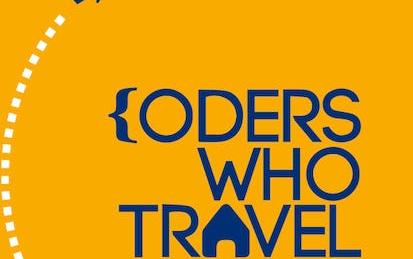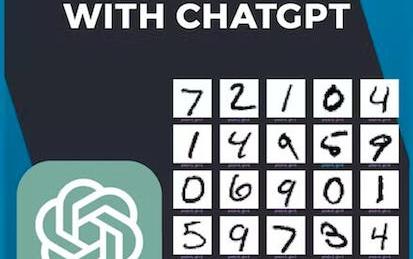

Our Courses

Data Collection: Online, Telephone and Face-to-face
This course presents research conducted to increase our understanding of how data collection decisions affect survey errors.
-
Course by

-
 Self Paced
Self Paced
-
 21 hours
21 hours
-
 English
English

Burgos: Deciphering Secrets of Medieval Spain
This advanced course focuses on two primary goals: (1) appraising how Jews, Christians, and Muslims shaped the history of medieval Spain and (2) mastering the craft of Spanish paleography, the skill of identifying Spanish handwriting in the 11th- through 15th-century manuscripts. Through the lens of the medieval history of Burgos, we dedicate 75% percent of our efforts to developing pragmatic expertise in the interpretation of Carolingian/French/Gothic handwriting.
-
Course by

-
 Self Paced
Self Paced
-
 45 hours
45 hours
-
 English
English

Learning SAS: Reading Raw Data from Fixed Columns
By the end of this project, you will be able to input raw data into SAS by applying the Formatted Input as well as embed raw data directly into SAS via the DATALINES statement.
-
Course by

-
 Self Paced
Self Paced
-
 3 hours
3 hours
-
 English
English

Assets in Accounting
In this second course, you will dive deeper into the world of bookkeeping and focus on accounting for assets. If you are familiar with bookkeeping basics, such as double entry accounting, you are ready for this course. You will gain an understanding of common asset types, learn how to account for inventory, calculate cost of goods sold, and work with Property, Plant, and Equipment (PP&E). Upon completing this course, you will use your new knowledge of assets to record transactions and produce financial statements for increasingly complex business situations.
-
Course by

-
 Self Paced
Self Paced
-
 19 hours
19 hours
-
 English
English

Get Started with Empathy Mapping the User Experience in Miro
By the end of this project, you will be able to use applied empathy to visualize and understand the authentic user experience and customer needs that have yet to be met.
-
Course by

-
 Self Paced
Self Paced
-
 3 hours
3 hours
-
 English
English

Mind of the Universe: Science in Progress
From William Harvey discovering the circulation of blood to Albert Einstein developing the theory of relativity: almost all scientific research starts from something odd and unexpected that hasn't been explained yet, and, subsequently, the scientist creatively imagining possible explanations for it, formulating hypotheses. However, the problem with formulating hypotheses is the "theory-ladenness of observation": ones expectations and background theories curtail and determine what one observes.
-
Course by

-
 Self Paced
Self Paced
-
 5 hours
5 hours
-
 English
English

Culture-Driven Team Building Capstone
In this capstone project class, you analyze a real-world case provided by N2Growth, a global firm that helps clients create a culture of leadership through practice areas like strategy, cultural transformation and organizational design. Based on the N2Growth case, you are expected to identify and diagnose organizational issues, select a senior leader and make recommendations in a culminating PowerPoint or Prezi presentation.
-
Course by

-
 Self Paced
Self Paced
-
 14 hours
14 hours
-
 English
English

Sensory Science: Measuring the Senses
The brain is the most sophisticated sensory interpreter that we know of. Our brain is like a very powerful computer, but no engineered computer exists that can mimic our human sensory capabilities. This course will explore sensory science by examining how the senses are connected to the brain and how the brain makes meaning of the signals it receives. Various types of testing, scales, and measurements are described that allow scientists to quantify senses and the brain’s experience of senses.
-
Course by

-
 Self Paced
Self Paced
-
 12 hours
12 hours
-
 English
English

Perspective-Taking
You can plan what you want to accomplish, but other people will always be a factor. Planning for the actions of others can’t be taken lightly. You need to understand what people want, but you also need to have your influence on the conversation. Ultimately, you can use this knowledge to plan for each scenario. With the expertise of Dr. Timiebi Aganaba from the ASU School for the Future of Innovation in Society, the Perspective-Taking course will put the tools, knowledge and strategies of strategic conversation directly into your hands.
-
Course by

-
 Self Paced
Self Paced
-
 6 hours
6 hours
-
 English
English

APIs in Java: Call and Integrate an API
As a Java backend developer, why is it important to use rest endpoint? REST is a logical choice for building APIs that allow users to connect to, manage and interact with cloud services flexibly in a distributed environment. RESTful APIs are used by such sites as Amazon, Google, LinkedIn and Twitter. In this intermediate 90-minute project, you will utilize an API in your java application, create method headers for APIs, pass arguments to your java APIs, incorporate Java methods into a Java API application, and use the Java collection library in a Java application.
-
Course by

-
 Self Paced
Self Paced
-
 3 hours
3 hours
-
 English
English

Getting Started with Data Analytics on AWS
Learn how to go from raw data to meaningful insights using AWS with this one-week course. Throughout the course, you’ll learn about the fundamentals of Data Analytics from AWS experts. Start off with an overview of different types of data analytics techniques - descriptive, diagnostic, predictive, and prescriptive before diving deeper into the descriptive data analytics. Then, apply your knowledge with a guided project that makes use of a simple, but powerful dataset available by default in every AWS account: the logs from AWS CloudTrail.
-
Course by

-
 4 hours
4 hours
-
 English
English

Machine Learning with ChatGPT: Image Classification Model
In this 1-hour project, you will learn how to build a machine learning model using ChatGPT. We will use the MNIST database which is a large database of handwritten digits that is commonly used for training various image processing systems. You will be introduced to the process of fine-tuning, which involves adjusting the model's parameters to learn task-specific relationships between input and output. You will import the necessary libraries and load the data, and then split the data into training and testing sets.
-
Course by

-
 Self Paced
Self Paced
-
 3 hours
3 hours
-
 English
English

Professional Selling: Step 1 - Think Like a High-Performer
Foundational Skills and Knowledge Required of High Performing Salespeople. This course takes the mystery out of sales and the sales process. Learners will gain a clear understanding of the sales process and the fundamental skills required to build lasting, long-term, trusting relationships with customers. Participants in Course One will be provided “The Road Map” to the sales process and learn how the highest performing salespeople think about sales and sales activity.
-
Course by

-
 Self Paced
Self Paced
-
 8 hours
8 hours
-
 English
English

Creative Artifacts
Creative Artifacts explores how different tools and structures can be used to increase creativity through a multidisciplinary lens. You will see how renowned artists use machine learning to expand their creative capacities, and you will gain experience collaborating with creative AI tools yourself. On a macro scale, you will examine the business strategies and economic policies that make organizations and regions more creative. As you progress, you will reflect on how these tools and structures can enhance your creativity and how they might impact the larger society.
-
Course by

-
 Self Paced
Self Paced
-
 21 hours
21 hours
-
 English
English

Simple Parallel Coordinates Plot using d3 js
Throughout this guided project we are going to create a simple Parallel Coordinates Plot (PCP) using d3 js. PCP is one of the most common data visualization techniques used to visualize high-dimensional datasets. In this guided project you will create a simple PCP step by step. We will also cover some important topics in data visualization such as Linear and Ordinal scaling to best visualize our data. Having the knowledge of javascript programming language and the basics of d3 js are the two most important prerequisites to get the most out of this guided project.
-
Course by

-
 Self Paced
Self Paced
-
 3 hours
3 hours
-
 English
English

Deep Neural Networks with PyTorch
The course will teach you how to develop deep learning models using Pytorch. The course will start with Pytorch's tensors and Automatic differentiation package. Then each section will cover different models starting off with fundamentals such as Linear Regression, and logistic/softmax regression. Followed by Feedforward deep neural networks, the role of different activation functions, normalization and dropout layers. Then Convolutional Neural Networks and Transfer learning will be covered. Finally, several other Deep learning methods will be covered.
-
Course by

-
 Self Paced
Self Paced
-
 31 hours
31 hours
-
 English
English

Write a Mini Reservation Application with Kotlin
In this 1.5 hours project-based course, you will complete and improve a mini airline reservation application and learn more advanced concepts of Kotlin such as higher order functions, lambda expressions, infix notation, Java interoperability, and many more.
-
Course by

-
 Self Paced
Self Paced
-
 3 hours
3 hours
-
 English
English

Getting Started with Facebook Pixel
In this 1 hour long project, you will create a Facebook Pixel, learn various integration methods, create a custom audience using Facebook Pixel and then learn about creating Facebook ads using the Facebook Pixel. You will also learn about the application of Pixel in Facebook marketing, especially in Retargeting. We will explore manual & partner integrations in detail. I will also show you a demo on how to integrate Pixel with Wix. In the final tasks, we will create a custom audience & Facebook ads using Pixel.
-
Course by

-
 Self Paced
Self Paced
-
 3 hours
3 hours
-
 English
English

User Experience & Interaction Design for AR/VR/MR/XR
This second course in the XR for Everybody specialization looks at how to design new user experiences for XR technologies. The course provides learners with a design thinking mindset and equips them with a fundamental toolbox for creating XR applications using rapid prototyping. It starts with a broad overview of the complete XR design process, discussing different paths to becoming an XR creator, what is generally involved in making XR experiences, and how to best get started.
-
Course by

-
 Self Paced
Self Paced
-
 28 hours
28 hours
-
 English
English

Measuring Stock Liquidity
In this 1-hour long project-based course, you will learn how to use Average Daily Traded Volume and Share Turnover to measure liquidity, use Depth of Market (DOM) and Bid-Ask Spread to compare liquidity, and use Variance Ratio to quantify liquidity.
-
Course by

-
 Self Paced
Self Paced
-
 2 hours
2 hours
-
 English
English

Build a Fast Typing Game using Java Swing
By the end of this project, you will create a fully functioning fast typing game using Java Swing in Eclipse. This project will give you a great head start towards learning more and mastering one of the most used programming languages in the world. In this project you will be able to identify and apply many basic fundamentals such as data structures, variables, loops etc. Moreover, you will be able to perform simple String manipulation, save and compare the user's input to the original correct word and finally, you will be able to create dynamic labels for many applications.
-
Course by

-
 Self Paced
Self Paced
-
 2 hours
2 hours
-
 English
English

FIFA20 Data Exploration using Python
By the end of this project, you will learn to use data Exploration techniques in order to uncover some initial patterns, insights and interesting points in your dataset.
-
Course by

-
 Self Paced
Self Paced
-
 2 hours
2 hours
-
 English
English

Structured Query Language (SQL) using SAS
Course Description In this course, you learn about Structured Query Language (SQL) and how it can be used in SAS programs to create reports and query your data. “By the end of this course, a learner will be able to…” ● Query and subset data. ● Summarize and present data. ● Combine tables using joins and set operators. ● Create and modify tables and views. ● Create data-driven macro variables using a query. ● Access DBMS data with SAS/ACCESS technology.
-
Course by

-
 Self Paced
Self Paced
-
 27 hours
27 hours
-
 English
English

Marketing Analytics with Meta
This course explores Meta Marketing Analytics Tools. You'll learn how to create ads using Meta Ads Manager, utilize Meta experiments, optimize ads through A/B testing, integrate data from campaigns and perform an analysis to evaluate the results.
-
Course by

-
 Self Paced
Self Paced
-
 13 hours
13 hours
-
 English
English

Calculus through Data & Modelling: Techniques of Integration
In this course, we build on previously defined notions of the integral of a single-variable function over an interval. Now, we will extend our understanding of integrals to work with functions of more than one variable. First, we will learn how to integrate a real-valued multivariable function over different regions in the plane. Then, we will introduce vector functions, which assigns a point to a vector. This will prepare us for our final course in the specialization on vector calculus.
-
Course by

-
 Self Paced
Self Paced
-
 5 hours
5 hours
-
 English
English



